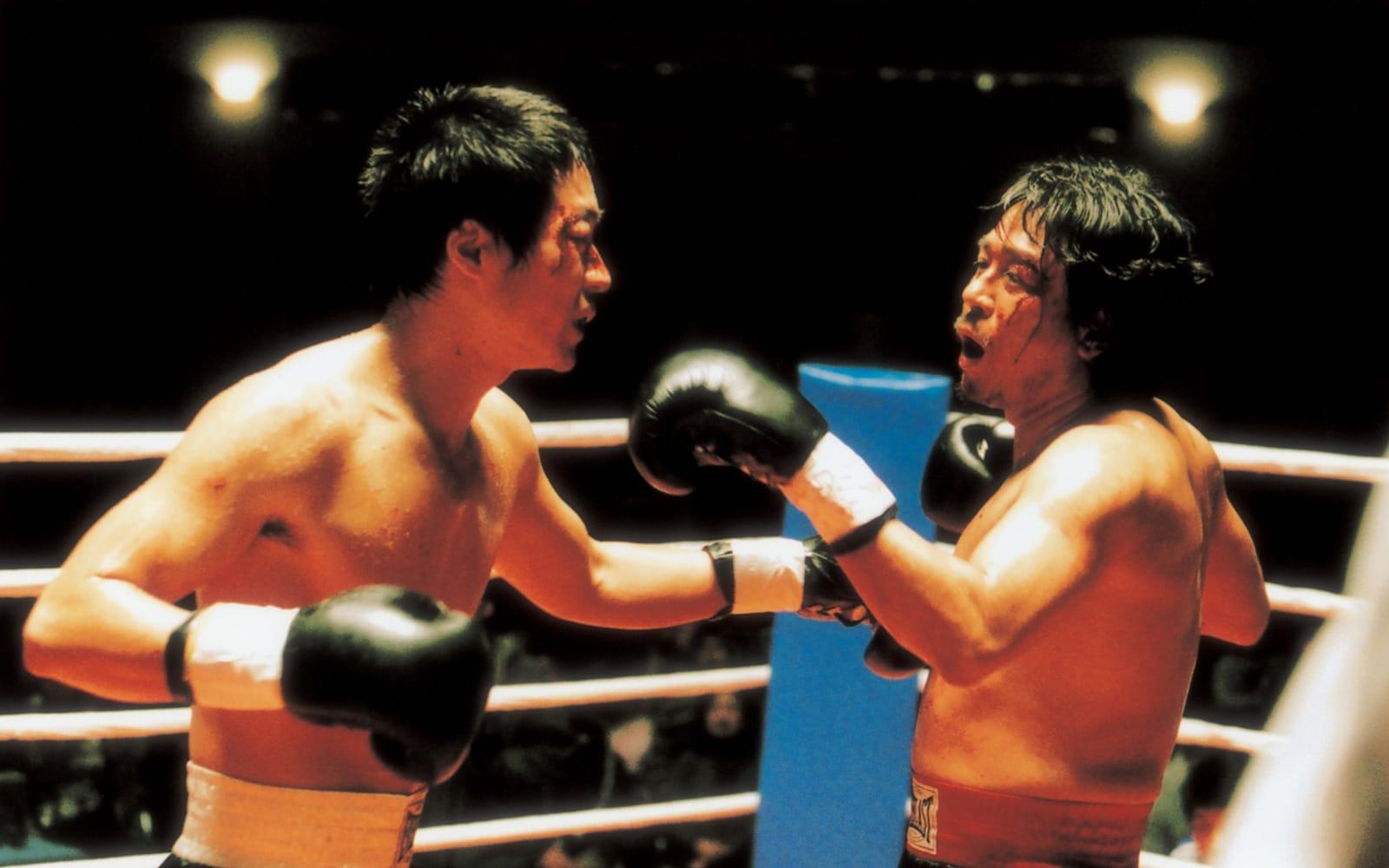Crying Fist by Ryoo Seung-Wan (Review)

Along with A Bittersweet Life, Crying Fist was one of the big Korean films this year. And unfortunately, like A Bittersweet Life, I found it rather underwhelming. And what makes it an even bigger disappointment is that it had so much going for it.
For starters, there are the two leads, Choi Min-sik and Ryu Seung-beom, who both give very solid performances. Of course, that should come as no surprise with Choi Min-Sik, who has delivered a string of solid performances (Shiri, Failan, Chihwaseon, and of course, OldBoy). His Gang Tae-shik, a washed up silver medalist boxer, is the complete antithesis of OldBoy’s Oh Daesu, or rather, what Oh Daesu might have become had he not been imprisoned for 15 years. And as the vicious, directionless Yoo Sang-hwan, Ryu Seung-beom is nearly unidentifiable in his dreadlocks, and gives a performance that is very different from the hapless, bumbling hero he played in Arahan.
Visually, the film is solid as well. The cinematography has a sharp, visceral feel to it, sometimes even taking on a documentary air. And the camerawork is impressive as well, especially during the sparring sequences. Rather than use an assault of quick edits and jump cuts, director Ryu Seung-Wan (whose previous feature, Arahan, is way better than it has any right to be) uses long, unbroken takes, zooming in and out to highlight certain movements or placing the camera right there in the fight, dancing around the boxers as they dance around eachother.
Like the extended shot that captures hallway brawl in OldBoy, these extended takes become incredibly exhausting and tiring for the viewer, which allows them to empathize with the growing exhaustion of the fighters as they struggle against each other.
So what doesn’t work? It’s mainly the plot. On the surface, it has so much potential. Gang Tae-shik once had glory as a silver medalist, but that’s all faded now. His wife hates him, his son is ashamed of him, and the only way he can make money is by working as a human punching bag, charging people to hit him so they can work off stress.
Yoo Sang-hwan is your typical angry youth, a petty thief who is sentenced to five years in prison when he accidentally kills the loan shark he’s trying to rob. In prison, his quick temper lands him in solitary until the head guard realizes he might have some potential and signs him up for the prison boxing team.
Obviously, the movie is setting both of them up for a final showdown, and by making them both pitiful and desperate, it tries to give us conflicted loyalties. Who should we cheer for in the inevitable meeting? The down-on-his-luck Tae-Shik, who has one last chance for glory and respect? Or Sang-hwan, who desperately needs a break, a promise for a brighter future?
Unfortunately, for all of the desperate straits the characters find themselves in, I found myself feeling little, if any urgency for them. Despite being built up as characters who are desperately reaching for one last chance, who have reached their wit’s end, I found it very hard to cheer or feel anything for either one of them, solid performances notwithstanding.
Part of the problem is the film unfortunately veers once too often into the sort of heavy melodrama that Korean cinema is so well-known for. When done right, Korean drama is great. But here, it feels very misplaced, milking scenes for drama and tears when perhaps a darker, grittier touch would’ve served the film’s themes a lot better.
Maybe I’m just a “glass half empty” kind of guy, but I wanted the film to get even darker, even more hopeless, minus the sappy drama. This is especially true for the film’s ending. I personally would’ve liked something a lot darker and heavier, which would have ended up feeling more lyrical and emphatic than the mawkish finale we’re given.
